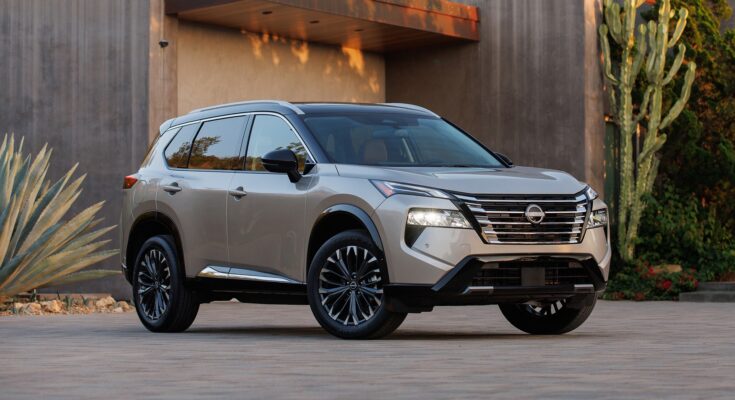Understanding Nebraska’s Uninsured Motorist (UM) Coverage
Nebraska law mandates that all auto insurance policies include uninsured motorist (UM) coverage, unless specifically rejected in writing by the policyholder. This coverage is designed to protect you if you are injured in an accident caused by a driver who has no auto insurance. The minimum required UM coverage in Nebraska is $25,000 per person and $50,000 per accident. Underinsured motorist (UIM) coverage, which protects you when an at-fault driver has insurance but their limits are insufficient to cover your damages, is also required to be offered but can be rejected in writing.
Common Reasons for Uninsured Motorist Claim Denials in Nebraska
Despite paying your premiums, insurance companies may deny your UM claim for a variety of reasons. Understanding these reasons is the first step toward fighting back.
1. Disputes Over Fault and Liability
Your insurer may argue that the uninsured driver was not entirely at fault for the accident. Nebraska follows a “modified comparative negligence” rule. If you are found to be 50% or more at fault for the accident, you are barred from recovering any compensation. If you are less than 50% at fault, your recovery is reduced by your percentage of fault. An insurer may deny a claim by asserting your fault level was too high, making a thorough investigation and evidence collection critical.
2. Policy Exclusions and Technicalities
Insurance policies are complex contracts filled with exclusions and conditions. A denial may be based on:
- Late Reporting: Failing to report the accident to your insurer within a “reasonable time” or as specified in the policy.
- Lack of Physical Contact: Some older policies required “physical contact” with the hit-and-run vehicle, meaning if a driver forced you off the road without making contact and fled, your claim could be denied. However, Nebraska case law has largely negated this requirement if there is independent corroboration of the event.
- Vehicle Use Exclusions: Denials can occur if you were driving a vehicle not listed on your policy, driving for a ride-share service without proper endorsements, or using your vehicle for a purpose excluded in the contract.
3. Questions About the “Uninsured” Status
The insurer may challenge whether the at-fault driver was truly uninsured. They might suspect the other driver had insurance that was simply not identified at the scene or argue that a vehicle owned by the driver but not present at the accident should provide coverage.
4. Inadequate Documentation of Injuries and Damages
A claim can be denied if the insurance company believes you have not provided sufficient proof linking your injuries to the accident or demonstrating their severity. This includes:
- Gaps in medical treatment.
- Lack of objective medical evidence (like MRI or X-ray results).
- Inconsistent statements about the injury’s impact on your life.
- Failure to provide documentation of lost wages or other economic damages.
5. Coverage Lapses or Policy Cancellation
If your own insurance policy had lapsed due to non-payment or was canceled before the accident occurred, you will have no UM coverage to claim from.
6. Settlement Release Issues
If you settled with the at-fault driver directly and signed a release of all claims, you may have inadvertently released your own insurance company from its obligation to pay a UM claim. Nebraska law requires insurer consent for such settlements to preserve your UM rights.
The Critical Role of a Nebraska Car Insurance Lawyer
When faced with a denied UM claim, an experienced Nebraska car insurance lawyer is not just an advisor; they are your advocate against a powerful insurance company. Their role is multifaceted and essential.
Navigating the Complex Legal and Insurance Landscape
Attorneys understand the intricate language of insurance policies, Nebraska’s insurance statutes (Neb. Rev. Stat. § 44-6408, et seq.), and the body of case law that interprets them. They can identify bad faith tactics, apply relevant legal precedents to your case, and ensure all procedural requirements are met.
Investigating the Accident and Rebuilding Your Claim
A lawyer will conduct an independent investigation, which may include:
- Obtaining and analyzing the official police crash report.
- Interviewing witnesses and securing sworn statements.
- Working with accident reconstruction experts to prove fault.
- Collecting and preserving all relevant evidence, including traffic camera footage and cell phone records.
Handling All Communication with the Insurance Company
Once you hire an attorney, all communication with the insurer should go through them. This prevents you from making inadvertent statements that could be misconstrued and used against you. Lawyers know how to frame arguments, respond to denials, and negotiate from a position of strength.
Demanding the Insurance Company’s Internal File
Under Nebraska law, you have the right to request the claims file your insurer created regarding your case. An attorney can parse this file for inconsistencies, errors, or evidence that the denial was made in bad faith without a reasonable basis.
Filing a Lawsuit and Litigating the Case
If a fair settlement cannot be reached, your attorney will file a lawsuit against your insurance company. This lawsuit can allege two things:
- Breach of Contract: Arguing the company violated the terms of the insurance policy you paid for by wrongfully denying your UM claim.
- Bad Faith: Arguing the insurer acted without a reasonable basis for the denial and knew or recklessly disregarded the lack of a reasonable basis. A successful bad faith claim can result in additional damages beyond the policy limits, including attorney’s fees, court costs, and even punitive damages.
The Appeals Process and Your Legal Options
A denial is not the final word. Your lawyer will guide you through the appeals process.
Internal Appeal
The first step is often a formal appeal within the insurance company itself, presenting new evidence and a strong legal argument for why the denial should be reversed.
Mediation and Arbitration
Many policies contain clauses requiring disputes to go through mediation (a facilitated negotiation) or arbitration (a private trial before a neutral arbitrator) before a lawsuit can be filed. An attorney is crucial in these settings to effectively present your case.
Litigation
Filing a lawsuit in Nebraska district court is the ultimate recourse. Litigation involves discovery (exchanging evidence), depositions (sworn out-of-court testimony), pretrial motions, and potentially a trial. The threat of litigation often motivates insurers to settle claims they previously denied.
Steps to Take Immediately If Your Claim Is Denied
- Do Not Accept the Denial at Face Value: Insurance denials are common and often initial positions.
- Request a Written Explanation: The insurer is required to provide a specific reason for the denial in writing. Review this carefully.
- Preserve All Evidence: Keep your vehicle untouched if it has damage, save all medical records and bills, and keep a journal of your pain and recovery.
- Cease Direct Communication: Stop discussing your claim with the insurance adjuster.
- Consult a Nebraska Car Accident Lawyer Immediately: Time is of the essence due to statutes of limitations and the need to gather evidence. Most offer free consultations and work on a contingency fee basis, meaning they only get paid if you recover compensation.
Proactive Measures to Protect Your Claim
To strengthen your position from the start:
- Report the Accident Promptly: Notify your insurer immediately after any accident, even if you suspect the other driver is uninsured.
- Seek Medical Attention: See a doctor right away, even if you feel fine, as some injuries manifest later.
- Document Everything: Take photos of the scene, vehicles, your injuries, and get contact information for witnesses.
- Understand Your Policy: Review your declarations page and know your UM/UIM limits and any specific requirements.
- Never Sign a Quick Settlement: Do not accept a settlement from any party without first consulting an attorney, as it may jeopardize your UM claim.

